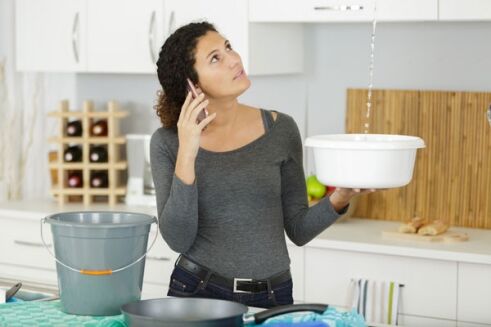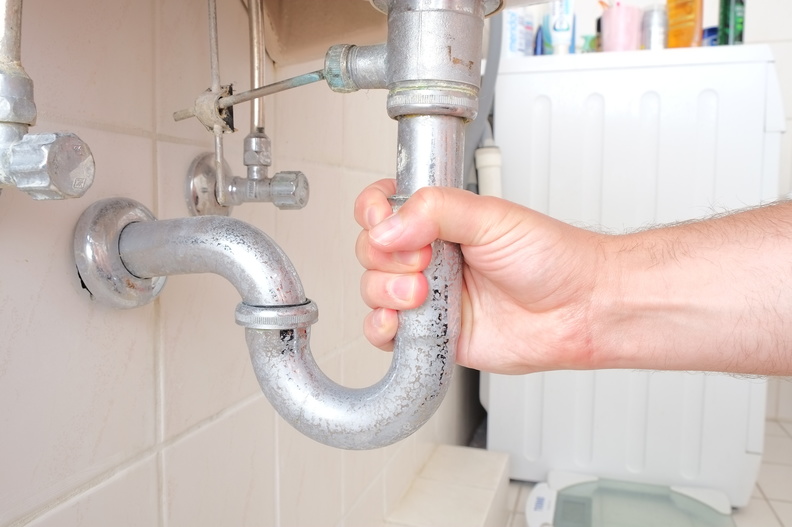Immediate Solutions for Critical Situations Until Support Arrives
Immediate Solutions for Critical Situations Until Support Arrives
Blog Article
What are your thoughts on What to Do While Waiting for an Emergency Plumber?

Plumbing emergencies can strike at any time, causing stress and possible damages to your home. Whether it's a ruptured pipeline, a stopped up drainpipe, or a leaking faucet, knowing how to manage the situation till a specialist plumbing professional gets here can conserve you from additional problems. This article provides essential emergency situation pipes ideas to assist you reduce damage and reclaim control throughout a pipes crisis.
Turn Off the Water
The very first step in any type of plumbing emergency situation is to shut down the water system. For localized issues, such as a dripping tap or toilet, turn off the shutoff near the fixture. In the case of a significant leakage or burst pipeline, find your home's primary water shut-off valve and transform it off right away. Knowing the area of these shutoffs beforehand can conserve useful time during an emergency.
Turn off Your Water Heater
In particular emergencies, such as a burst pipeline, it's a good idea to shut off your hot water heater. This avoids getting too hot or damage to the unit when water quits flowing. Switch off the power supply to the water heater (electric or gas) and allow it cool down to stay clear of potential threats.
Briefly Quit a Burst Pipeline
A ruptured pipe can bring about considerable water damage in mins. To reduce the concern:
Call a specialist plumbing quickly to deal with the problem completely.
Have an Emergency Situation Plumbing Set
Prepare a basic plumbing emergency situation kit to deal with small concerns effectively. Your set must consist of:
Having these devices accessible can make a substantial difference in your ability to manage emergencies.
Unclog Drains Securely.
A clogged up drainpipe can be an irritating and unpleasant issue. Here's exactly how to tackle it:.
If these approaches do not function, stay clear of making use of too much pressure, as it might aggravate the obstruction.
Handle Overflowing Toilets.
An overflowing toilet can cause immediate chaos. Below's what you need to do:.
Address Little Leaks with Temporary Solutions.
Little leaks can quickly come to be considerable problems if left unchecked. Make use of these momentary fixes till expert help gets here:.
While these fixes aren't permanent, they can aid lessen water loss and damages.
Manage Frozen Water Lines Thoroughly.
In chillier climates, frozen pipelines are an usual emergency. If you think a frozen pipe:.
Know When to Call a Professional.
While quick fixes can help briefly, specific pipes concerns call for immediate professional interest. Call a plumbing technician if:.
Quickly calling a specialist ensures the issue is fixed properly and protects against further complications.
Prevent Further Damage.
Taking quick activity to lessen damages can conserve you money and time in the future. Here's how:.
Conclusion.
Pipes emergencies can be overwhelming, yet with the ideal knowledge and devices, you can handle the situation effectively till assistance arrives. By switching off the water system, addressing tiny leaks, and making use of momentary fixes, you can decrease damages and keep your home safe. Bear in mind, these suggestions are temporary options; always get in touch with an accredited plumber to take care of the source of the trouble. Preparation and fast thinking are your best allies in any type of plumbing emergency situation.
8 Helpful Tips for Managing Plumbing Emergencies at Home
If your plumbing system hasn’t failed once, wait for it because almost everyone has a story to tell. Sometimes, it could be simple emergencies such as a leaking pipe, a blocked cistern, or even a big burst pipe. In situations like this, you need to have some handy tips to save you some money and from possible damages.
Take care of minor issues early.
Sometimes, you could have avoided an emergency by taking proactive measures while it was still early. Some major plumbing emergencies can be a result of an ignored minor issue. We recommend that you have items like plumbing tapes and other related items. A plumbing tape can allow you to manage minor leaks before the plumber arrives.
Cut off the water supply.
This tip is essential in almost any type of leakage problem. For problems like minor leakages in the toilet or kitchen, turn off the supply that takes water to the affected pipes. If the leakage is a major pipe, you must shut off the supply valve to the entire building. This will help you avoid flooding your home and neighbors if you share a flat.
Know your plumbing system
Folks typically move into a new apartment without understanding the water supply around the building. This can prove disastrous if a water emergency arises and the plumber is far away. The previous tip will prove useless if you don’t practice this one. More importantly, know where your water shut-off valve is located – you’ll need that knowledge to prevent potential home floods.
Have some common handy tools
There are lots of plumbing emergencies that you can handle without hiring a plumber. That’s why you must keep some tools available always. Some tools that you can use to fix simple plumbing emergencies easily include plumbing tapes, screwdrivers, thread seal tapes, plungers, pliers, tape measures, and rubber gloves.
Insulate your pipes from cold
You’ll save yourself from many plumbing expenses if you protect your water pipes from the cold. This is because of the harmful effects that cold weather can have on your pipes. During winter, your pipes can burst from being overly expected to freezing temperatures. So, make sure insulators are there to keep the pipes working correctly.
Avoid practices that will clog your toilet.
Many people indulge in practices that can damage the plumbing system of the entire building. One of these is when they use their toilet to dispose-off garbage. They flush all kinds of things, such as paper towels, bandages, hairs, female sanitary products, etc., down the toilet. This will block your toilet in the long run, incurring unnecessary expenditures. Dump such waste in the trash instead.
Check your dials regularly.
Sometimes, there could be leakages in your home without noticing them in time. So, constantly monitor your water meter dial. If the dial is reading when there is nobody using water, this is an indicator that there is leaking. Check for leaks immediately. Call a plumber as soon as possible if you can’t find any.
https://www.constructionplacements.com/8-helpful-tips-for-managing-plumbing-emergencies-at-home/

We were shown that write-up about What to Do During a Plumbing Emergency from a buddy on our other web page. Do you know about anybody else who is truly interested in the topic? Please feel free to share it. Thanks for your time. Don't hesitate to stop by our blog back soon.
Show Details Report this page